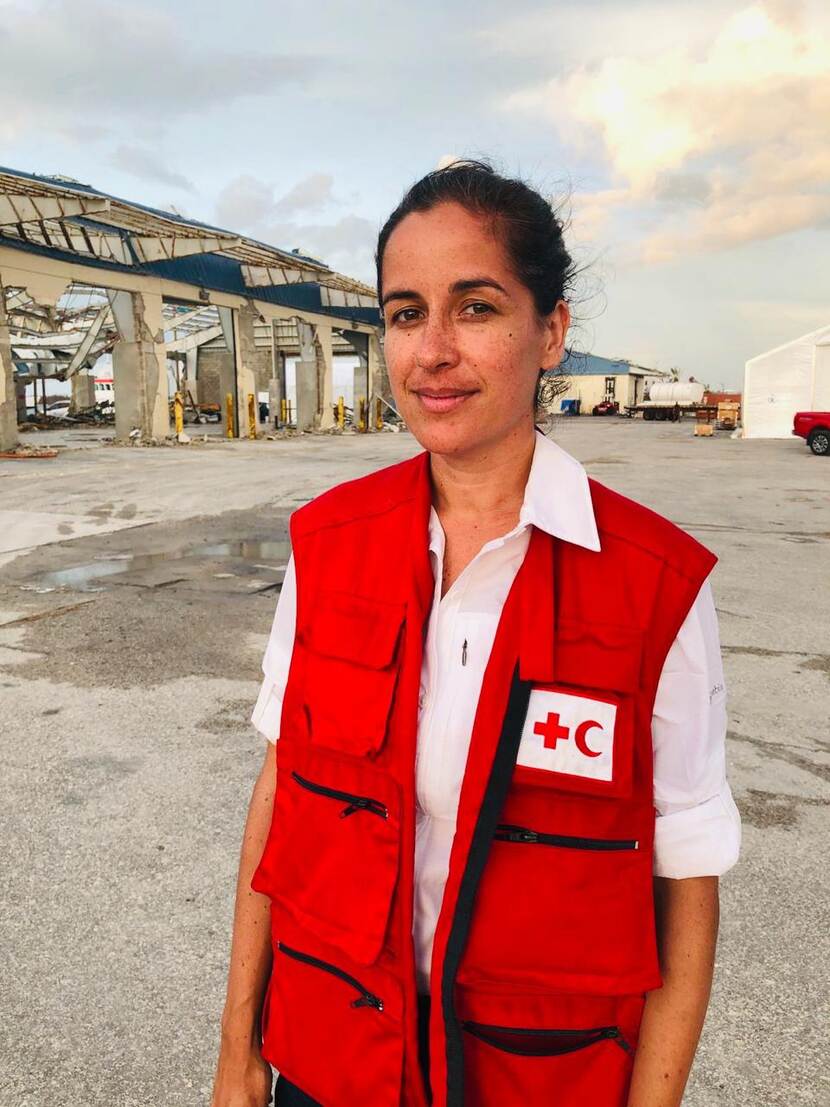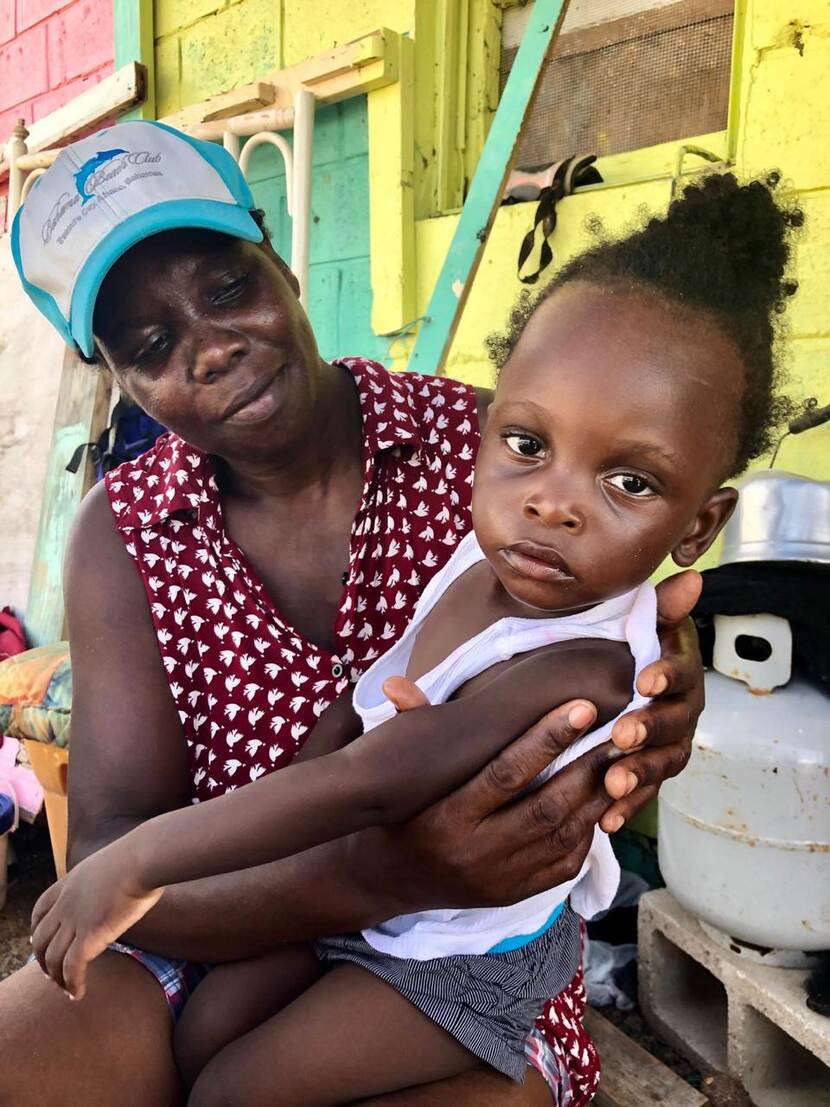Nurses offer psychosocial support to victims of Hurricane Dorian
Voices from the field
Hurricane Dorian, which tore through the Bahamas in early September, left a trail of total destruction in its wake. Dozens of islanders lost their lives and hundreds of people are still missing. We spoke to a Red Cross public health coordinator about offering psychosocial support in the immediate aftermath of natural disasters.

Bahamian prime minister Hubert Minnis described Hurricane Dorian as one of the biggest crises the country has ever experienced.
The hurricane was one of the strongest Atlantic storms ever that hit the Bahamas.In early September the category 5 hurricane rumbled slowly over the islands, destroying tens of thousands of buildings, as well as airfields and harbours.
Erin Law, a public health coordinator for the International Federation of Red Cross and Red Crescent Societies, arrived in the islands two days after the hurricane. She is now based in Nassau, where she coordinates the organisation’s psychosocial services. ‘When I arrived I was shocked by the devastation,’ she says. ‘Communities had been decimated and some houses completely blown off their foundations.’ According to the Red Cross, 70,000 people were in need of aid, and there were shortages of food, water and petrol.
Traumatic experiences
‘Everyone is in shock, whether they chose to stay and wait out the storm or left and are now returning,’ Law explains. ‘Some people decided to flee when the storm was at its peak, leaving behind neighbours who later died in the hurricane’s second phase. All these survivors now have to come to terms with their losses.’
From the start there was an urgent need for mental healthcare and psychosocial support, Law says. ‘Many people have been traumatised. Some children are now afraid of water, for example, and don’t even dare to step into a bath. I also saw a child so traumatised they were unable to eat.’
Nurses
Law and her colleagues work closely with the Bahamian Ministry of Health to provide mental health and psychosocial support (MHPSS). Not long before the hurricane hit, groups of nurses were trained in providing MHPSS in crisis situations. Less than a month later, their expertise was badly needed. Immediately after the hurricane, Law set up a central contact point that people could go to for assistance. She also drew up a schedule for the nursing staff. The team then faced the challenge of providing support to as many people as possible.
That was no easy task in a place where residents are scattered far and wide. ‘In a refugee camp, aid is coordinated from a central location,’ Law explains. ‘You have a distribution point that everyone can visit. But with a natural disaster in a place like the Bahamas the situation is completely different. Here we have to actively seek out the people who need help.’

Preparation
In Law’s view, providing psychosocial support in the immediate aftermath of a disaster is essential. To do it successfully, such support needs to be part of any humanitarian operation’s long-term strategy. But long-term plans need to be in place at national level too, as in the Bahamas, where nurses received advance training. ‘When it comes to mental healthcare and psychosocial support during a disaster, we have to be prepared. We have to be on hand straight away.’
Declaration
A coalition of countries and organisations have committed to addressing MHPSS needs in crisis situations. On Tuesday 8 October 2019, high-level participants of the international MHPSS conference in Amsterdam endorsed a declaration to this effect, including the International Committee of the Red Cross and the International Federation of Red Cross and Red Crescent Societies.
